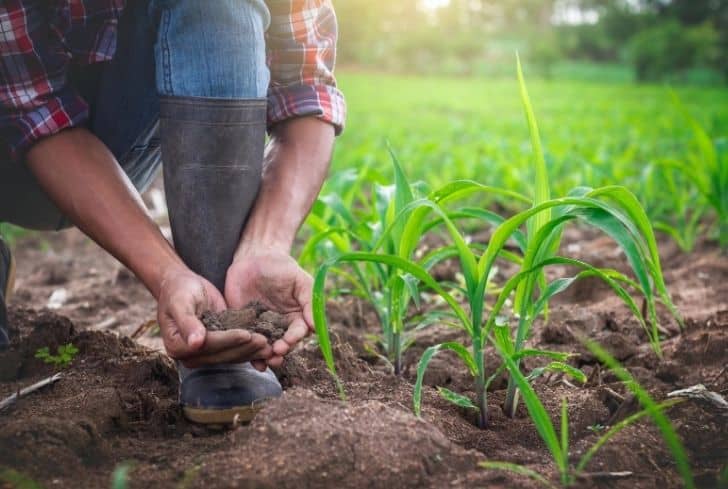Due to the increasing need for soybeans across numerous industries, soybean farming is a growing industry that has recently gained prominence.
Traditional soy farming, however, might have negative repercussions on the environment and society, such as habitat destruction, labor abuses, and deforestation. Sustainable soy farming practices are rising in popularity; as a result, lowering these risks and enabling investors to support more moral supply chains.
Investing in sustainable soy may have several financial benefits, including promoting more environmentally friendly and sustainable agricultural practices, profitability, and increasing lowering input costs.
This article will examine the advantages of investing in sustainable soy and the business case.
Sustainable Soy Production
Soybean growers in the United States prioritize soybean sustainability. Farmers utilize sustainable farming practices such as crop rotation, reduced-till or no-till, water and fertilizer management, precision farming technologies, and cover crops as land stewards. These strategies assist farmers in increasing efficiency, yielding more harvests, and producing sustainable soy.
Crop rotation shifts crops from various fields on different years to decrease the strain on those farms. Reduced tillage is a farming method in which farmers dig up the land less frequently before or after harvesting crops.
Nutrient management is applying appropriate fertilizers or additions to maintain the soil and plants healthy. While precision farming is a farming method that employs technology to ensure crops and soil receive what they require at the right moment.How Eco-Friendly Practices Benefit Farmers and The Planet
1. Profitability
Investing in sustainable soy might be a smart financial move because it has the potential to be profitable. Crop rotation, conservation tillage, and cover crops are sustainable soy farming strategies that may increase yields and crop quality over time. These strategies aid in improving soil fertility and health, productivity, and profitability.
Furthermore, producers who can meet the growing demand for responsibly cultivated soy may gain from the market, particularly in Europe and North America.
Because sustainable soy farming techniques are frequently more socially and environmentally responsible than traditional farming practices, many consumers are willing to pay a premium for food produced ethically.
Hence, farmers who utilize sustainable practices may command higher prices for their soy products, boosting their profitability.
2. Adaptability
Soybeans are flexible crops that may be grown in various environments and temperatures. Since they can adapt to different rainfall patterns, climate conditions, and soil types, they are a fantastic crop for farmers worldwide.
Soybeans can also be employed in various applications because of their versatility, expanding their potential market. Soybeans can make multiple goods, including animal feed, soy-based foods like edamame, soy milk, and tempeh, and biofuels like biodiesel.
3. Large Branding Potential
Another element that makes soy investment prudent is its immense branding possibilities. Soybeans are a significant commodity in various marketplaces due to their numerous uses and applications. As a result, soybean goods may be branded and sold to a vast customer base, possibly giving high-profit margins.
Soy-based food items have become more popular due to their nutritional value and environmental sustainability. As a result, companies have developed various soy-based food products and marketed them as eco-friendly and healthy alternatives to regular meals.
Investors can profit from this branding potential by investing in things derived from soybeans and selling them to a vast consumer base.
Furthermore, the soy sector is constantly developing due to ongoing research and development efforts to improve the product’s quality and diversify its applications. This enables investors to finance cutting-edge soy products and sell them as distinct and innovative, enhancing their profitability.
4. Low Investment Cost
Investing in sustainable soy may be a wise move for various reasons, including its lower investment cost than other forms of sustainable agriculture.
Instead of more expensive commercial fertilizers and herbicides, compost and cover crops are natural inputs in sustainable soy production. Farmers may reduce production costs by using fewer chemical inputs, making the transition to more sustainable ways more possible.
Additionally, natural inputs support soil fertility and health, which may lead to improved crop quality and higher yields over time. Healthy soils contain more nutrients, strengthening plants’ defenses against pests and diseases.
They also improve water retention, which minimizes the need for irrigation. This implies that farmers can increase soy yield while utilizing fewer inputs, cutting production costs and giving farmers who spend a significant advantage.
5. Global Trade Opportunities
Global trade opportunities are a wise argument explaining why investing in sustainable soy is wise.
Investors can get access to international markets and profit from the growing demand for soybean goods because soybeans are a widely traded commodity with a considerable market. The United States, Brazil, Argentina, China, and India produce the most soybean output.
Because of advancements in logistics and transportation, the worldwide trade in soybeans has been more streamlined in recent years, making it easier for investors to buy and sell soybeans across international borders. As a result, new markets for soy-based industrial items and animal feed have emerged.
Bottomline
Sustainable soy production is a wise investment for businesses seeking to meet customer demands while safeguarding the environment, enhancing soil health, and strengthening communities. Companies can reduce their environmental impact and ensure a long-term supply of high-quality soy by investing in sustainable soy cultivation.
Sustainable soy production can also assist in minimizing climate change, reducing the risk of supply chain disruptions, and promoting social responsibility if done correctly. Investing in sustainable soy production is the right thing to do and a wise business move that can boost profits and ensure a sustainable future for future generations.

